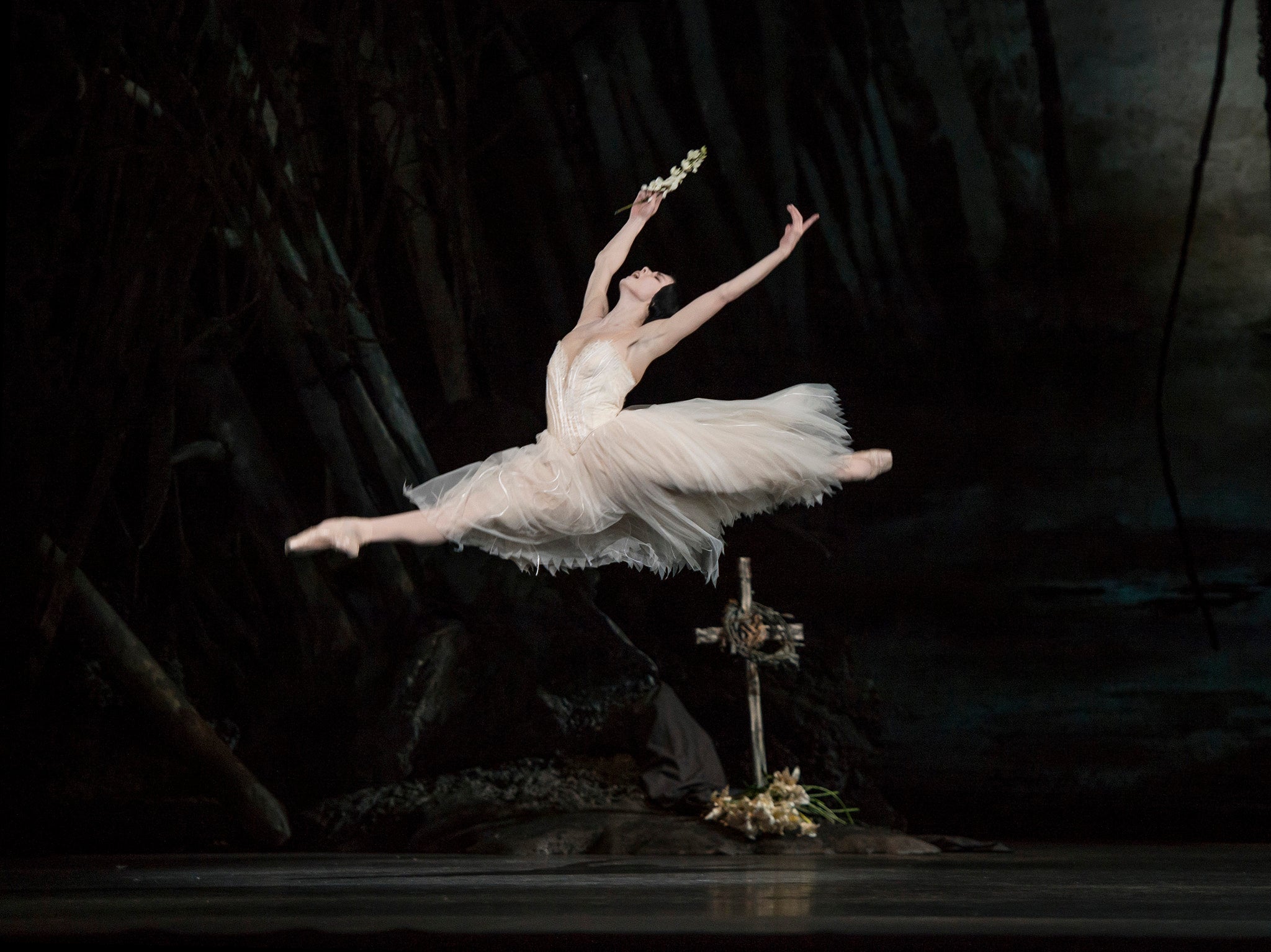Giselle, ballet review: 'Carlos Acosta partners Natalia Osipova with devoted care'
Royal Opera House, London

Your support helps us to tell the story
From reproductive rights to climate change to Big Tech, The Independent is on the ground when the story is developing. Whether it's investigating the financials of Elon Musk's pro-Trump PAC or producing our latest documentary, 'The A Word', which shines a light on the American women fighting for reproductive rights, we know how important it is to parse out the facts from the messaging.
At such a critical moment in US history, we need reporters on the ground. Your donation allows us to keep sending journalists to speak to both sides of the story.
The Independent is trusted by Americans across the entire political spectrum. And unlike many other quality news outlets, we choose not to lock Americans out of our reporting and analysis with paywalls. We believe quality journalism should be available to everyone, paid for by those who can afford it.
Your support makes all the difference.Natalia Osipova’s Giselle is the most radical I’ve ever seen. Not because she takes any liberties with this Romantic classic – she dances with pure line, superb technique and feeling for the ballet’s style – but because her dramatic intelligence brings it to such fresh, burning life.
Created by Jean Coralli and Jules Perrot in 1841, Giselle is the story of a village girl who loves but is betrayed by Albrecht, a disguised nobleman. Osipova, an ex-Bolshoi ballerina who joined The Royal Ballet this season, is a dancer who rethinks her performance, responding to the production around her.
In Peter Wright’s naturalistic staging for The Royal Ballet, Osipova’s Giselle is shy and frail, making the heroine’s weak heart a keynote. Yet she’s sunnier than before, and full of fond reassurance for her anxious mother. After initial nervousness, she doesn’t doubt Carlos Acosta’s handsome Albrecht.
Exhausted by illness, her Giselle still loves dancing. Osipova’s whirling spins are full of feverish energy: her prodigious technique becomes an expression of the character’s physical frailty. When she dances to entertain aristocratic visitors, she starts modestly – until the sheer joy of dancing takes over. Her hops on pointe are high, springy and tireless, while the solo ends with turns that feel like an outpouring of delight.
When Albrecht’s deception is uncovered, this Giselle doesn’t want to believe it. Breaking between Acosta and his aristocratic fiancée, she wants to put things right: it must be a mistake. In the mad scene that follows, she’s already half a ghost, seeing spirits in the air. Acosta watches her with frozen horror, a careless man forced to accept consequences.
Returning as one of the wilis, vengeful female spirits, Osipova reminds you that Giselle is a ghost story. With its driving, hopping turns and explosive little jumps, her first solo suggests the terrifying need that could bring someone back from the dead. Her floating line and soaring jump make her unearthly. She pleads for Albrecht’s life with melancholy warmth, but there’s still a frightening chill to Osipova’s otherworldly Giselle.
The Royal Ballet looks energised by its new star, with a strong company performance around her. Acosta partners her with devoted care, and responds to her dazzling dancing with renewed sharpness and attack of his own. Led by Valentino Zucchetti and Yuhui Choe, the peasant pas de six has an airy precision. Hikaru Kobayashi needs more authority as Myrthe, the Queen of the Wilis, but the corps are on confident form. Boris Gruzin conducts a taut performance of Adolphe Adam’s tuneful score.
Dancing his first Albrecht at the matinée performance, Steven McRae showed exuberant technique and an intelligent sense of drama. His Albrecht is pushy, aggressively chasing Roberta Marquez’s coy Giselle; he goes stony as disaster approaches, then crumples when it hits. In the second act, he pushes naturalistic acting too far, sometimes allowing it to get in the way of his dancing. McRae’s Albrecht has both technique and feeling, but he needs to balance them better.
In repertory until 10 February. Box office 020 7304 4000. Giselle will be screened in cinemas on 27 January.
Join our commenting forum
Join thought-provoking conversations, follow other Independent readers and see their replies
0Comments